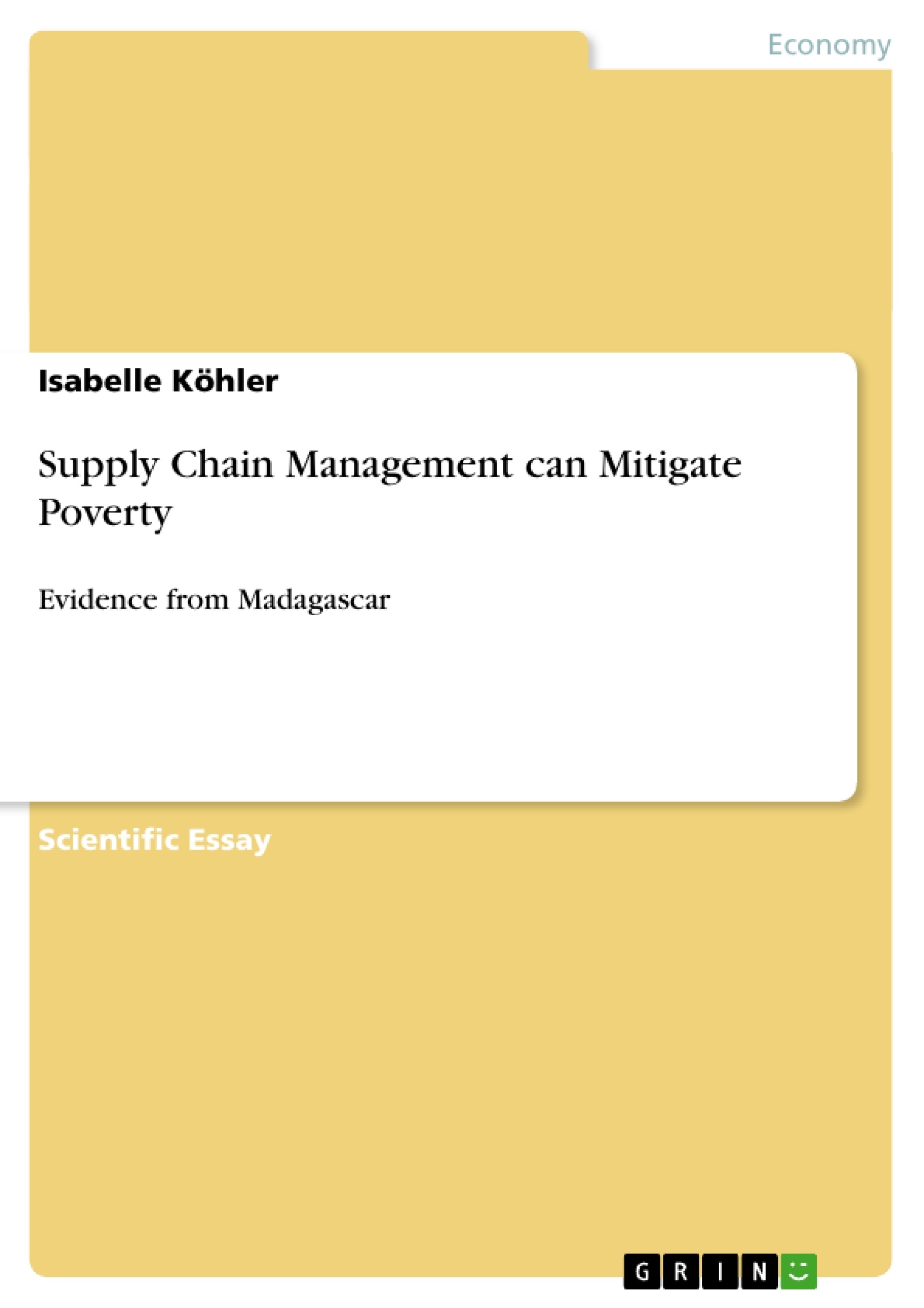Are global supply chains a threat or an opportunity for developing countries?
Does globalization rather exploit poor farmers or does it have beneficial effects?
This paper addresses this questions and shows recent evidence how the poor in Madagascar could benefit from integration in global supply chains.
Inhaltsverzeichnis (Table of Contents)
- Current situation and past supply chain improvements
- Supply Chain Management can Mitigate Poverty
- Contract Farming
- Global Retail Chains
Zielsetzung und Themenschwerpunkte (Objectives and Key Themes)
This paper explores the potential of global supply chains to contribute to poverty reduction in developing countries. It uses Madagascar as a case study to illustrate how the integration of smallholders into global value chains can benefit the poor.- The impact of global supply chains on poverty in developing countries
- The role of contract farming in poverty reduction
- The challenges and opportunities faced by smallholders in Madagascar
- The importance of infrastructure development and legal frameworks in supporting supply chain integration
- The potential for global retailers to promote ethical and sustainable sourcing practices
Zusammenfassung der Kapitel (Chapter Summaries)
- Current situation and past supply chain improvements: This chapter provides an overview of Madagascar's economic and social context, highlighting the country's poverty, agricultural sector, and export dependence. It also discusses the challenges faced by smallholder farmers, including poor infrastructure and limited access to markets. The chapter outlines the government's efforts to improve rural infrastructure and attract foreign investment.
- Supply Chain Management can Mitigate Poverty: This chapter explores the potential of integrating Malagasy smallholders into global value chains to alleviate poverty. It discusses initiatives such as the Everything but Arms (EBA) and African Growth Opportunity Act (AGOA) that have facilitated access to international markets. The chapter also examines the challenges of integrating smallholders into global supply chains, including asymmetric information, lack of knowledge and skills, and inadequate infrastructure. The chapter concludes by highlighting the potential of contract farming as a model for integrating smallholders while addressing these challenges.
- Contract Farming: This section focuses on contract farming as a mechanism for integrating smallholders into global value chains. It explains the role of contracts in specifying input requirements, credit conditions, and prices. The chapter also highlights the benefits of contract farming, such as access to credit, training, and stable income. It provides examples of contract farming models in Madagascar, including the collaboration between General Mills Foundation, Häagen-Dazs, and Malagasy vanilla farmers. The chapter also discusses the empirical evidence of the effectiveness of contract farming in improving farmer welfare and income stability, as well as its potential to address the challenges of asymmetric information and limited access to inputs.
- Global Retail Chains: This section discusses the increasing demand from global retailers for specific standards regarding food processing, employment practices, safety, and traceability. It emphasizes the importance of these standards for ensuring farmers' competitiveness and stimulating sustainable production practices. The chapter explores the opportunities and challenges for smallholders in meeting these standards and navigating the complexities of global retail markets.
Schlüsselwörter (Keywords)
This paper examines the role of global supply chains in poverty alleviation, with a focus on contract farming and its potential to improve farmer livelihoods. Key themes include: supply chain management, poverty mitigation, developing countries, Madagascar, smallholder farmers, contract farming, global retail chains, ethical sourcing, and sustainable agriculture.Frequently Asked Questions
How can Supply Chain Management help mitigate poverty?
By integrating smallholder farmers from developing countries into global value chains, they gain access to international markets, stable income, and technical knowledge.
What is contract farming and why is it beneficial?
Contract farming involves agreements between farmers and buyers. It provides farmers with credit, quality inputs, and training, while ensuring buyers receive a consistent supply of products.
What are the specific challenges for farmers in Madagascar?
Farmers face issues like poor infrastructure, limited market access, asymmetric information, and lack of legal frameworks to protect their interests.
What role do global retail chains play in sustainable agriculture?
Global retailers set high standards for food safety and traceability, which encourages local farmers to adopt more sustainable and competitive production practices.
Does globalization exploit or empower poor farmers?
The paper argues that when managed correctly through ethical supply chains, globalization offers opportunities for empowerment by providing stable livelihoods and better resources.
- Quote paper
- Isabelle Köhler (Author), 2013, Supply Chain Management can Mitigate Poverty, Munich, GRIN Verlag, https://www.grin.com/document/271442



